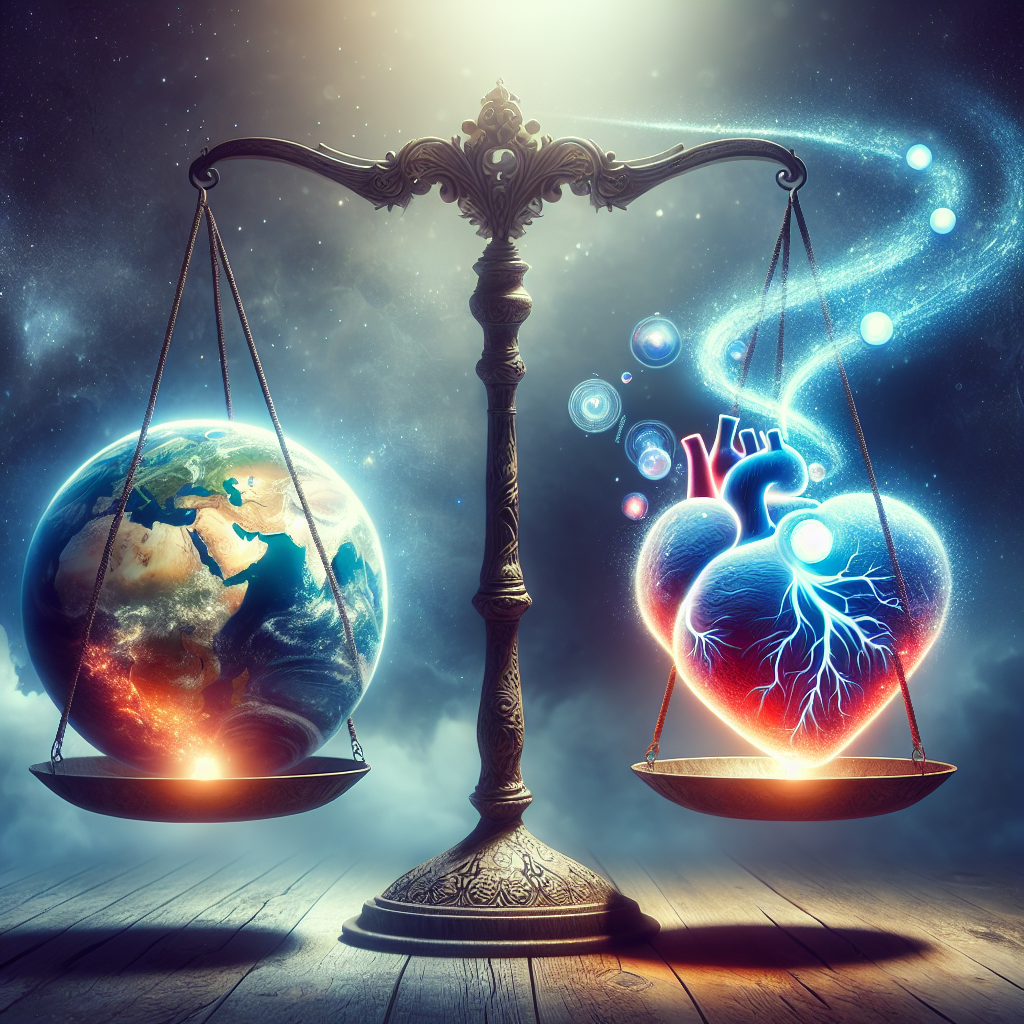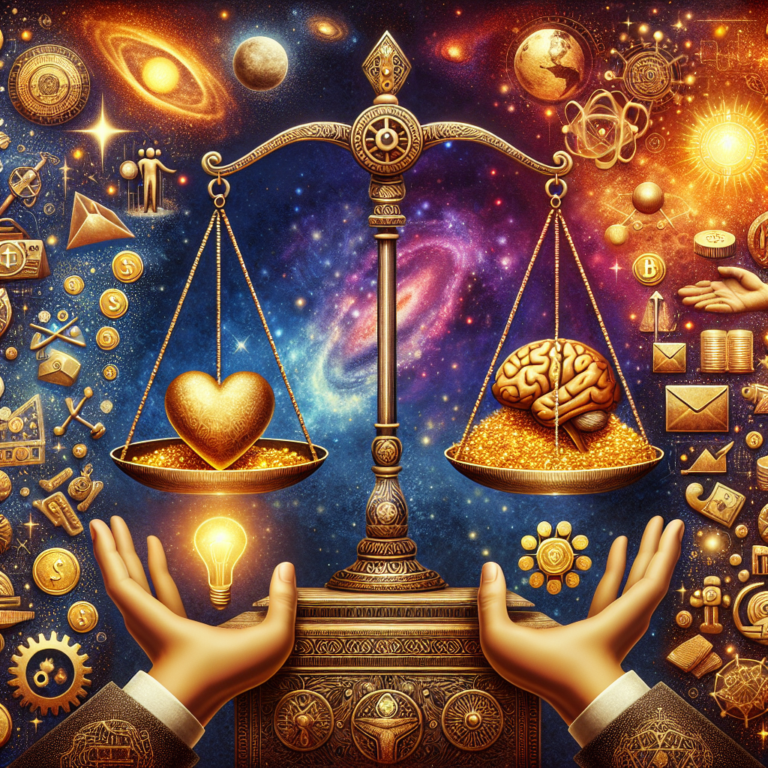In the complex tapestry of existence, our relationships significantly influence our perceptions of reality. The dynamics of how we interact and connect with others play a crucial role in shaping our experiences. At the heart of many philosophical and spiritual traditions lies the principle of karma, a concept that goes beyond simple cause and effect. This article delves into the intricacies of karma, exploring its impacts on relationships and ultimately our understanding of reality.
Defining Karma
Karma, originating from ancient Indian philosophies, fundamentally refers to the law of moral causation. The key idea is that every action we take – whether physical, verbal, or mental – creates a ripple effect in the universe. Positive actions lead to positive outcomes, while negative actions can yield adverse effects.
In a broader sense, karma can be viewed not just as the direct consequences of one’s actions but also as an understanding of our interconnectedness with others. This interconnectedness means that our relationships are constantly shaped by the karma we create and the karma we receive from those we interact with.
The Interplay of Karma and Relationships
Relationships are a fascinating field to explore the workings of karma. They serve as mirrors that can reflect our inner thoughts, feelings, and unresolved issues. Understanding karma’s role in relationships provides crucial insights into how we can navigate our interactions with others more mindfully.
1. The Law of Attraction
Karma often aligns with the Law of Attraction, which suggests that like attracts like. Our thoughts, intentions, and actions emit vibrations that attract similar energies back to us. Therefore, when we engage in positive actions and thoughts, we are more likely to attract individuals who resonate with that same positivity.
2. Healing Past Wounds
Relationships are often where we confront our unresolved issues. Through the lens of karma, we can view challenging relationships as opportunities to heal past wounds. Often, individuals we struggle with in life come in to teach us vital lessons about ourselves and to push us toward personal growth.
3. The Cycle of Forgiveness
Forgiveness plays a crucial role in the journey of karma. Holding onto grudges and negative feelings can create toxic karma, impacting our relationships adversely. Learning to forgive liberates us and allows healing energy to flow, transforming our interactions.
Karma in Different Types of Relationships
1. Family Relationships
Family dynamics frequently serve as the first exposure to karmic patterns. Unresolved issues passed down through generations can manifest in recurring conflicts or challenges within families. Recognizing these patterns can help individuals break the cycle and foster healthier, more loving family interactions.
2. Friendships
Friendships often mirror our personal growth and evolving identity. The friends we choose can significantly reflect our values, beliefs, and the energy we are putting out into the world. By examining our friendships through the lens of karma, we can assess whether they uplift or detract from our spiritual journey.
3. Romantic Relationships
Romantic relationships provide intense opportunities for growth, healing, and understanding. The connection shared in romantic partnerships can highlight areas of past karma that require attention. For a relationship to thrive, both partners must be willing to work through their karma together, embracing the lessons it brings.
Increasing Positive Karma in Relationships
If we acknowledge the significant role of karma in our relationships, we can take proactive steps to cultivate positive karma. Here are several effective strategies:
- Practice Kindness: Simple acts of kindness not only help others but also enhance our own emotional well-being.
- Communicate Openly: Honest communication fosters strong connections and helps clear misunderstandings that may lead to negative karma.
- Embrace Empathy: Understanding others’ perspectives enables us to respond thoughtfully and reduces conflict.
- Set Boundaries: Healthy boundaries protect our emotional energy and promote mutual respect in relationships.
- Engage in Self-Reflection: Regular self-reflection can help us identify and address negative patterns in our behavior.
The Role of Karma in Personal Growth
Karma isn’t just about what we sow; it’s also about our capacity to grow from our experiences. By understanding the impact of our actions and reactions within relationships, we harness the potential for personal evolution. The journey of self-awareness instigated by karma lessons leads to profound growth and a more nuanced grasp of reality.
1. Embracing Challenges as Lessons
Instead of viewing challenges and painful encounters merely as unfortunate events, embracing them as lessons redefines our understanding of reality. A karmic perspective encourages us to extract wisdom from these experiences, promoting resilience and growth.
2. Cultivating Resilience
Facing the consequences of our actions and relationships, and navigating through them positively, cultivates resilience. This emotional strength prepares us for future challenges, reinforcing the fact that growth often emerges from discomfort.
3. Achieving Inner Peace
As we learn to navigate our karma by applying forgiveness, understanding, and kindness, we gradually reach a state of inner peace. Inner peace leads to healthier relationships, as we project calmness and positivity into our interactions.
Conclusion
Understanding reality through the lens of karma profoundly alters our perception of our relationships. It unveils the interconnectedness of our actions and experiences while emphasizing the transformative power of our choices. Relationships are not merely social constructs; they are living components of our spiritual journey, shaped by the karma we create and receive.
By consciously engaging in positive actions, practicing forgiveness, and embracing growth, we can foster relationships that uplift us, helping us delve deeper into the essence of reality. As we move forward on our journeys, let us remember that the energy we put into the world will inevitably return to us, shaping our experiences in unfathomable ways.
Frequently Asked Questions (FAQs)
What is karma in simple terms?
Karma is the principle of cause and effect, where every action has consequences. It suggests that positive actions yield beneficial outcomes, while negative actions lead to adverse effects.
How does karma affect relationships?
Karma influences relationships by highlighting our interactions’ reciprocal nature. Our actions and choices shape the dynamics we share with others, reflecting the energy we emit back to us.
Can karma be changed?
Yes, karma is not fixed. By making conscious choices and engaging in positive actions, individuals can alter their karmic trajectories and create beneficial outcomes in their lives.
How can one create positive karma in relationships?
Creating positive karma involves practicing kindness, open communication, empathy, and self-reflection while embracing challenges as opportunities for growth.
Is karma only about individual actions?
While karma involves individual actions, it also encompasses collective experiences within relationships. Our interactions, contributing to mutual karma, highlight the interconnectedness of our existence.
It looks like you might be looking for a prompt for a creative writing piece, discussion topic, or something else. Could you please specify what type of prompt you are interested in? For example, are you looking for a story starter, an essay topic, or something related to a specific theme? Let me know how I can help!, #Understanding #Reality #Role #Karma #Relationships, #Understanding #Reality #Role #Karma #Relationships, 1736199510, understanding-reality-the-role-of-karma-in-our-relationships





